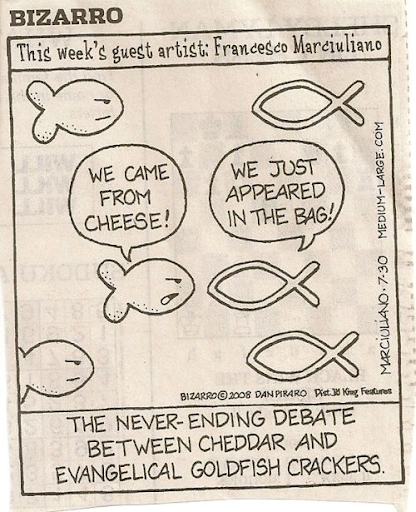From the Author’s Desk: Worldbuilding 101: Mythmaking

One thing to consider when creating the world for your story is the stories the people in your world tell one another about creation. How did your world come to be? What do the people in your world commonly believe about the beginning of it all? Generally, this kind of worldbuilding can be divided into two categories: the truth about creation and the myths about creation. Let’s start with the first part–what actually happened?
To start developing the truth of your world, consider the following questions:
How did your world come into being? Was it formed out of the Void, the result of some cosmic Boom, the plaything of a godlike being? Tolkien’s Middle Earth began as a song of the Ainur, a vision in music that the Valar had to then build based on their understanding and memories of that experience.
Is there just one world/planet? Is it a free-floating ball in space or a disc with an edge that people can fall off? Terry Pratchett’s Discworld is literally a disc on top of four elephants on top of a turtle that swims through space.
Is the world part of a larger galaxy/universe? Is there a larger cosmos with other solar systems in the galaxy or just the lone world floating in the void by itself? Think about the night sky your inhabitants would see—are those lights in the sky other stars or something else (Shrek’s ogre ancestors, for instance)?
What does the rest of the galaxy/universe look like? Solar systems with planets and suns or black holes or dwarf stars? Titan AE explores a universe where the earth is a tiny piece of a huge tapestry of galaxies.
How big is the universe? Are other worlds nearby or far away? Can people see it or travel to it? How is this done? Get a general sense—if light speed is 186, 282.397 miles per second, how far away is everything from everything else? For example, the sun is 91.4 million miles from Earth while the moon is only 238,900 miles away.
For the people in your world, are there visible stars in the sky? Other planets that can be seen? Do people create constellations from the patterns? What meaning is attributed to these lights in the sky? Is astrology a thing in your world?
Has anyone seen the planet from beyond the surface? Do people travel to space to get that perspective, or do they think the world is flat or ends beyond the mountain range in the distance?
Has the world always looked like this or has it changed over time? Was there an age of dinosaurs and prehistoric plant life or a world covered in oceans, or has it always been as it is now? (This relates to the “how old is your world” question too!).
If it has changed, why? What happened to make it look different? Was this change a result of some natural catastrophe (meteor strike, volcano eruption, ice age, etc.) or the result of the people who live in the world? What did the people do that caused such dramatic shifts in the world? Even earth has had some dramatic environmental shifts over time (*cough* dinosaurs *cough*).
How old is the world? Does the world have an expiration date—like will the sun explode at some point or the gravitational pull let it drift away into the void, or will the world always be there?
If your world is loosely based on the real world, how is it different from the known universe? What world-features are your characters familiar with that readers will recognize? What distinct world-features have you added to distinguish your world from the real one? Do things in the universe have the same name that the scientific community uses (Big Bang, quarks, Jupiter, Io, etc.)?
Bonus Question for Earth-Variants: Is Pluto a planet or a planetoid in your world? How do people argue about this distinction?
Now, think about the second part: What stories do people tell about creation in your world?
How do people explain the creation of the world?Are there competing theories about how it all began? Which ideas will your characters embrace? Which will they deny?
Are there immortals who remember the beginning? How accurate is that recollection (and do they share that knowledge with others)? Will those beings be around for the end of the world, like the robots in AI?
Has the truth of creation been altered in some ways? How? Why? By whom? How does this difference affect the story you will tell in that world?
How much is known by the average person in the world about the creation of the world? Is this knowledge protected or is it shared? How do people share this information (Giver-style or oral culture or what)?
Where would someone go to find creation stories? Are they written down and stored in a library or shared freely among the people? Who is permitted to learn the truth and who is not? Why?
Mythmaking will be the foundation of your world, but it doesn’t need to be the first thing you decide. Let your creative inspiration wander from topic to topic as you wish! Don’t box yourself into getting all of this information carved in stone from the start. One of the great things about being an author is the ability to shift things as you need–creation stories can change as your story develops. You don’t need to know everything from the start. That said, you should have some inkling of these answers somewhere in the back of your mind. Stories that take place in worlds with solid backgrounds, even if those details aren’t known by readers, tend to satisfy in a way that others do not. Readers can sense a solid foundation beneath the plot, details available should the need arise to start digging.
Shameless Self-Promotion Time: Did you enjoy these kinds of questions? Check out more in The General Worldbuilding Guide, available wherever books are sold!

